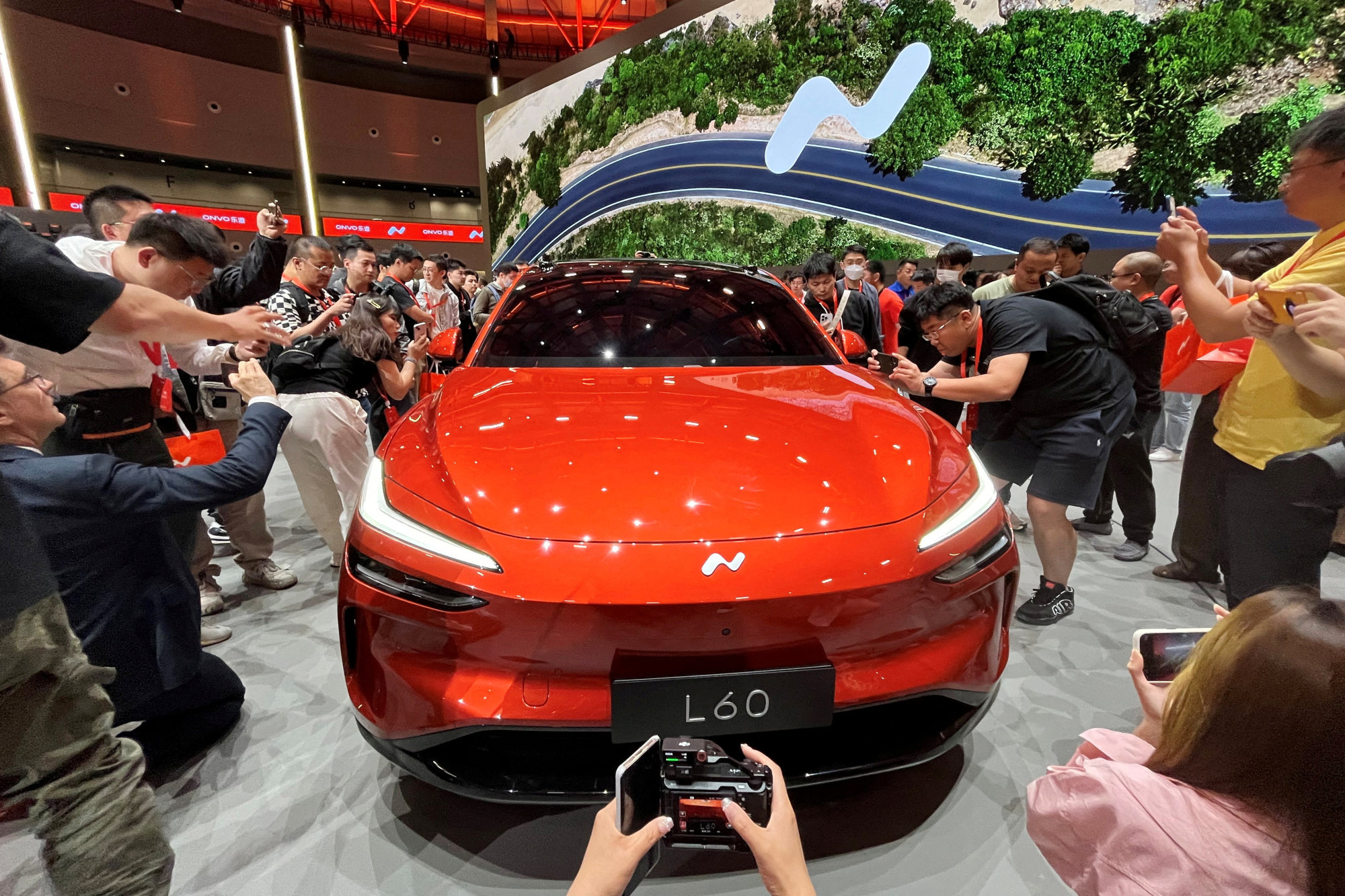In recent months, the European Commission has launched an increasingly dramatic series of investigations, frustrated by China’s apparent unwillingness to expand market access for European firms or tone down its use of industrial subsidies.
Trade wars occur when one party retaliates against another’s policies by either raising import tariffs or restricting market access for its products.
The Danish executive said he hoped the urgency of the situation would bring the two sides to the table. However, he was not optimistic that things could be straightened out in time.
“I really wish that I could give you an emphatic yes. And I don’t think I can,” he said.
“What is new is that we have a commission that clearly is not in the mood to back down without getting something in return. And China needs also to adapt to a situation where Europe has a willingness to follow through.”
In the past, Europe has suffered from a “credibility problem”, Eskelund said, with Chinese policymakers dismissing threats to weaponise the European market as unserious.
“I still think in some places there’s a feeling that at the end of the day Europe doesn’t have the will to push through with these things, or maybe that you can talk to some of the member states and they will intervene,” he said.
The Danish executive hoped the severity of the situation would make China urgently shift gears.
“I think what Europe is trying to do now is to fix that credibility problem,” he said. “It’s a way of saying, ‘you better pay attention now because things cannot continue the way that they have been’.”
Eskelund voiced surprise over “a very rapid development towards the commission being able to to act in ways that are meaningful” towards China.
“You see these movements up by the border, but you haven’t really pushed the button … the media is keeping us well-informed on troop movements,” he said.
“What we fear could happen [is] that these events take on a life of their own and become a sort of self-reinforcing doom loop. I think we need to be serious about the risk of that happening.”
The issue of overcapacity has become a lightning rod for the growing economic rivalry between Europe and China.

Europeans argue that Chinese subsidies have led to a glut in production of hi-tech and green goods, with not enough domestic demand to absorb them. The goods are then exported at a lower cost, and the relatively open EU economy is the logical destination.
While some welcome the influx of cheap goods to help in Europe’s green transition, officials fear they could undercut local providers and put them out of business.
“We can see all these things going on in the economy with increasing inventories, low utilisation rates, deflationary pressures, profit erosion, market share losses and stuff like that,” said Eskelund.
“These are all things that were typically associated with overcapacity.
“But it could also be low domestic demand. It could also be overstimulation of the supply side,” he continued. “It doesn’t matter. What matters really is the observable consequences of the wealth. So if China has a better word for it, let’s go with that.”
The chamber’s latest member survey found sentiment towards China was at its lowest point ever, as 46 per cent of businesses considered overcapacity a problem. The lobby chief believed the problem could get worse.
“We have seen over the past three years a fairly significant increase in investment of new capacity across a lot of industries. A lot of that new capacity is coming online or [will in the] coming months, adding to an oversupply situation.”

